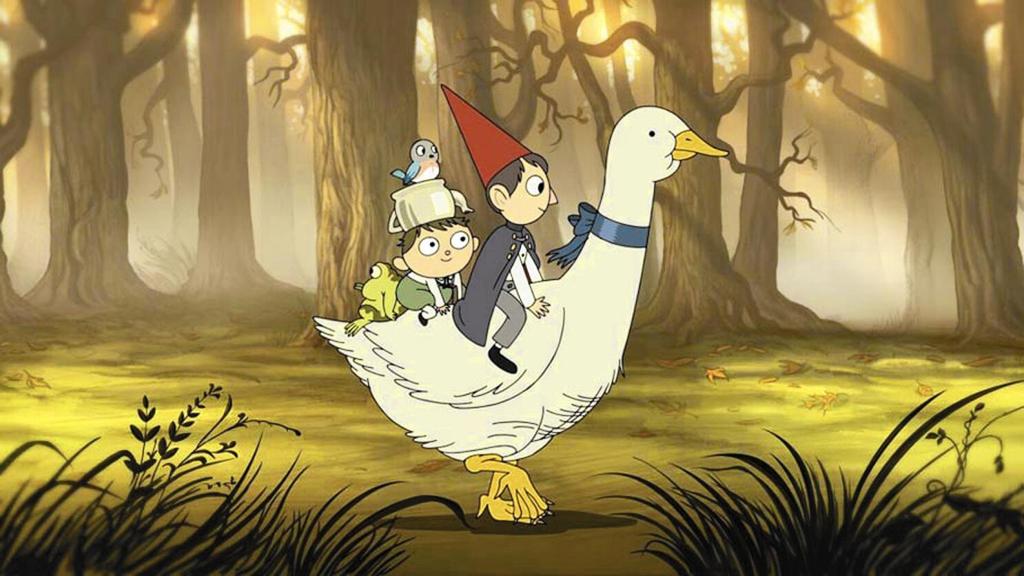For a miniseries as fleeting as the amber autumn leaves, Over the Garden Wall is a masterwork of worldbuilding.
In 2014, Patrick McHale, animator and screenwriter known for Adventure Time, crafted Over the Garden Wall, a unique and sentimental miniseries with the feeling of a memory we cannot remember in detail. The first episode presents the two protagonists: Wirt, an anxious teenager, voiced by Elijah Wood; and his younger brother Greg, voiced by Collin Dean. The two find themselves lost in a mysterious woodland they come to name “the Unknown.” As they progress, they encounter various supernatural creatures, ranging from talking frogs and birds to a strange village of sentient livestock.
The way the two approach the entities they encounter is greatly juxtaposed, with Wirt being overly cautious and skeptical while Greg doesn’t bat an eye at the unfamiliarity of the strange world.
What’s particularly brilliant about the Unknown is, ironically, its uncanny familiarity. The premise of being lost in the woods is not a particularly unknown trope, dating back to William Shakespeare’s A Midsummer Night’s Dream. Being lost in the woods has also frequently been a source of horror as well. From the classic folktale of “Hansel and Gretel” to the modern horror of The Blair Witch Project, the woods have served as a canvas for storytellers. As such, we’ve grown to be conditioned to stories of being lost in the woods, aiding Over the Garden Wall’s uncanny familiarity.
The Unknown serves as a liminal purgatory between phases: life and death, childhood and adulthood, sleeping and dreaming. It homogenizes the familiar with the unfamiliar, making viewers and the protagonists themselves feel that the world is familiar, yet something is off.
The enthusiastic Greg leaps from episode to episode with the same excitable and innocent attitude, unafraid of interacting with the world’s familiarity. Wirt, on the other hand, feels a deep unease for the Unknown’s familiarity, unwilling to trust the world the two venture into.
The soundtrack itself is worthy of immense praise. Recorded by the American folk band The Blasting Company, the songs have enough theatrical charm to fit into the story and advance the plot but are pleasant enough to enjoy separately from the series entirely. Lyrically, many of the songs touch on the yearning and possibility of what lies ahead in this life or the next. The melancholy of the lyrics is contrasted by the warm melodies and instrumentation. From a sentimental piano to a fearless-sounding bassoon, it’s an essential soundtrack for easy autumn listening.
A recurring theme that the series explores is things not always being what they seem to be, or missing details but not entirely being incorrect. This dichotomy prompts a relatable growth in character for Wirt, encouraging him to learn that uncovering the truth requires diving into the fear of the unknown. Perhaps what may be discovered is closer to our lives than we expect, or perhaps the truth conceals horrors, tying into the theme song’s line: “the loveliest lies of all.” The series conceals this idea in details like the moon, which always appears in a perfect half.

